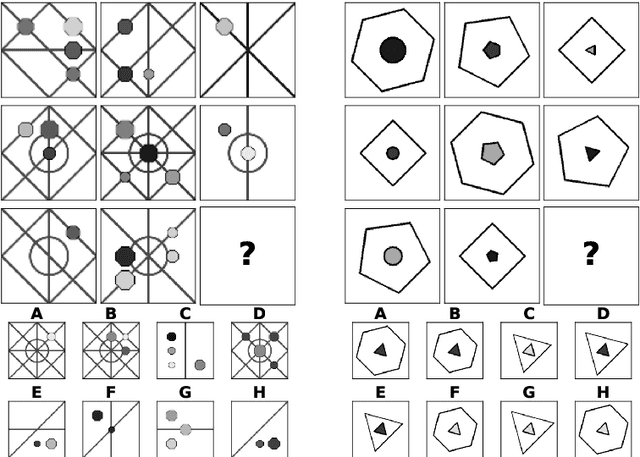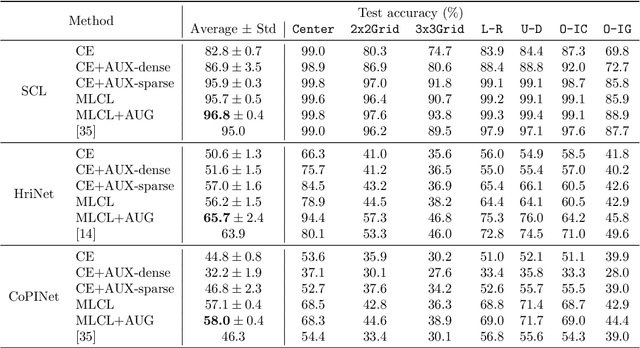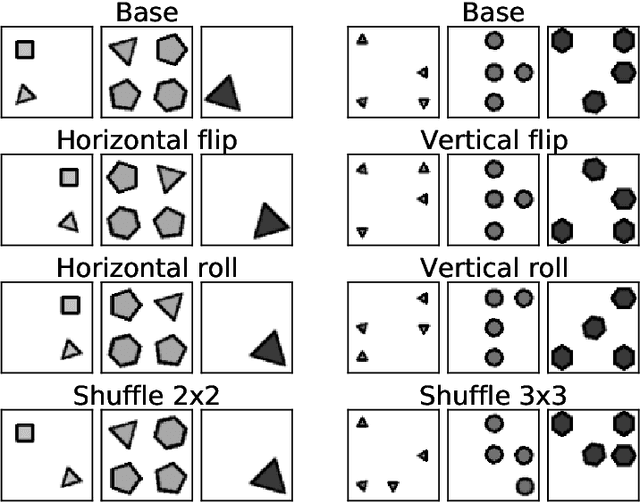Multi-Label Contrastive Learning for Abstract Visual Reasoning
Paper and Code
Dec 03, 2020



For a long time the ability to solve abstract reasoning tasks was considered one of the hallmarks of human intelligence. Recent advances in application of deep learning (DL) methods led, as in many other domains, to surpassing human abstract reasoning performance, specifically in the most popular type of such problems - the Raven's Progressive Matrices (RPMs). While the efficacy of DL systems is indeed impressive, the way they approach the RPMs is very different from that of humans. State-of-the-art systems solving RPMs rely on massive pattern-based training and sometimes on exploiting biases in the dataset, whereas humans concentrate on identification of the rules / concepts underlying the RPM (or generally a visual reasoning task) to be solved. Motivated by this cognitive difference, this work aims at combining DL with human way of solving RPMs and getting the best of both worlds. Specifically, we cast the problem of solving RPMs into multi-label classification framework where each RPM is viewed as a multi-label data point, with labels determined by the set of abstract rules underlying the RPM. For efficient training of the system we introduce a generalisation of the Noise Contrastive Estimation algorithm to the case of multi-label samples. Furthermore, we propose a new sparse rule encoding scheme for RPMs which, besides the new training algorithm, is the key factor contributing to the state-of-the-art performance. The proposed approach is evaluated on two most popular benchmark datasets (Balanced-RAVEN and PGM) and on both of them demonstrates an advantage over the current state-of-the-art results. Contrary to applications of contrastive learning methods reported in other domains, the state-of-the-art performance reported in the paper is achieved with no need for large batch sizes or strong data augmentation.
 Add to Chrome
Add to Chrome Add to Firefox
Add to Firefox Add to Edge
Add to Edge